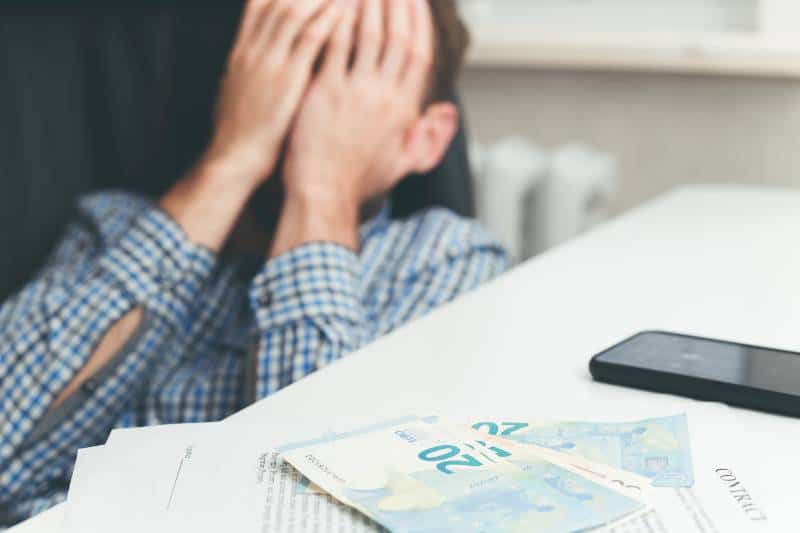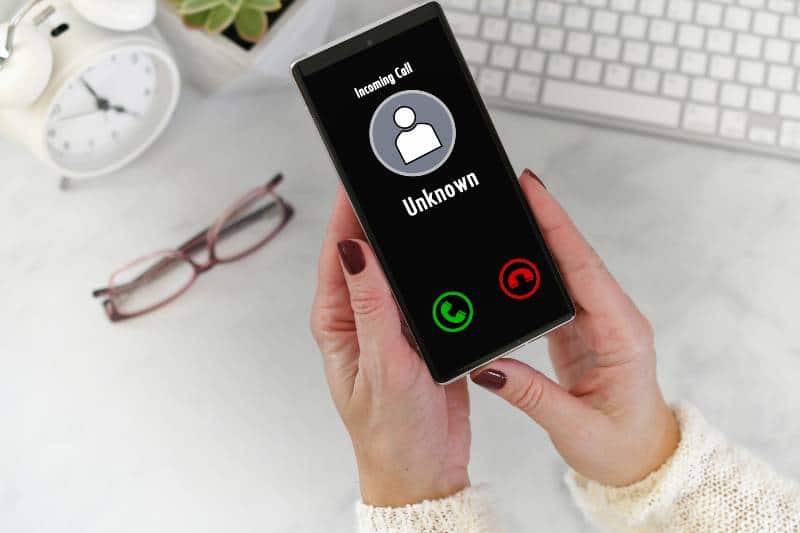Thailand Safety Guide: Scams Every Tourist Should Know
Thailand has long been known as a thriving tourist destination, but unfortunately, it is not exempt from scams that can dampen your holiday experience. From fake goods to con artists and even malicious medical services, tourists are vulnerable to being taken advantage of in the Land of Smiles if they do not take precautions. In this blog post, we’ll go over some common scams in Thailand so you can stay safe and sound during your vacation. With knowledge comes power – armed with this information alongside caution and awareness, you can craft an unforgettable trip without any nasty surprises!
In Thailand, tourists often face scams like overpriced tuk-tuks, fake gem shops, and bogus monks seeking donations. Some encounter “temple dress code” ruses, while others are lured into timeshare presentations. Jet ski damage claims and inflated bar tabs are also prevalent. Always stay vigilant and research beforehand to avoid these pitfalls.
Key Takeaways
- While Thailand is a beautiful and welcoming country, like any popular tourist destination, it has its share of scams. Being informed and vigilant can prevent most of these scams.
- Before engaging in activities or making purchases, a little research can go a long way. Knowing the average prices and common practices can help you avoid being overcharged or scammed.
- If you believe you’ve been scammed, it’s essential to remain calm, avoid escalating the situation, and report the incident to local authorities or your embassy. Sharing your experience can also help warn other travelers.

The Most Common Scams in Thailand
Tuk Tuks and Taxi Scams
A common scam involves Tuk-tuk drivers and taxi drivers overcharging unsuspecting tourists or taking them on unnecessary detours. The unsuspecting tourists, unfamiliar with local fares, end up paying more than the standard rate. Some drivers will also take longer routes with the intention of inflating the fare.
Gem Shop Scams
Gem shop scams involve selling fake gems or significantly overpriced gems to trusting tourists. Scammers will often captivate them with tales of high resale value back home, causing tourists to spend considerable amounts of money on worthless stones.
Temple Dress Code Scam
With this scam, tourists are charged for “appropriate” clothing at the entrances of temples. People operating under the guise of temple workers mislead unprepared visitors into believing that their attire is not respectful or fitting for temple visits. These scammers sell overpriced clothes to the tourists, exploiting their lack of knowledge about the actual dress code.
Fake Monks
Fake monks roam the streets soliciting donations from naive tourists, capitalizing on the respect usually given to the holy men. They dress similarly to monks but are not affiliated with any temple, and the money collected from well-intentioned tourists goes directly into their pockets.
Jet Ski Scam
Jet Ski Scam Thailand operators will claim money from tourists for pre-existing damages. The tourists, eager to enjoy water sports, are later coerced to pay up exorbitant amounts for minor or imaginary damages to the water vessels, which were allegedly caused by them.
Bar and Nightclub Scams
In these scams, bars and nightclubs overcharge tourists or spike their drinks. This generally involves presenting a larger-than-expected bill at the end of the evening or charging for services the tourists did not avail. In worst-case scenarios, drinks are spiked, putting the health and safety of tourists at risk.
Timeshare Scams
This involves fooling tourists into attending lengthy sales presentations, promising them attractive gifts in return, only to pressure them into investing in a property that often does not exist or look as described.
Fake Police
Scammers posing as police officers generate fines for invented offences. They insinuate an intimidating air under the pretence of police authority and demand tourists to pay unrealistic on-the-spot fines.
While Thailand is generally very safe, it’s wise to take standard precautions as you would anywhere. Personal safety is important, and this pepper gel provides a non-lethal self-defense option. Being aware of your surroundings and following basic safety practices will help ensure a positive experience.
Tailor Scams
Tailor scams involve selling low-quality clothing at outrageously expensive prices. The scammers, acting as renowned tailors, manipulate tourists by persuading them to buy custom-made clothes which turn out to be poorly stitched and made from low-grade fabrics.
Border Crossing Scams
These scams involve fake visa services and fees. Fraudsters, impersonating official service providers, trap tourists by promising faster or cheaper visa cross-border services, only to swindle them with exorbitant visa fees and sometimes, leaving them with counterfeit documents.
Money Exchange Scam
Thailand, with its mesmerizing tourist destinations, attracts millions annually. However, like many popular spots worldwide, it’s not immune to tourist scams. One common deceit is the money exchange scam, where unsuspecting travelers receive less than the correct amount or are given counterfeit bills.
While the country’s tourist attractions like beaches and temples are must-visits, it’s essential to be wary of over-aggressive touts. The Grand Palace scam is a classic example: tourists are often misled by locals claiming the palace is closed, redirecting them to overpriced shops instead.
If you ever find yourself in a dubious situation, the tourist police are a reliable resource. They are specially trained to assist travelers and address concerns related to scams in major tourist destinations. Always stay informed and vigilant to fully enjoy the beauty and culture of Thailand.
Safety Tips and Advice
Always research and compare prices: Before making any purchases or booking services in Thailand, it’s crucial to spend some time researching the average market prices and comparing them across different vendors to ensure you’re getting a fair deal and not being overcharged.
Avoid overly aggressive vendors or touts: While exploring the vibrant streets of Thailand, you may encounter vendors or touts who are particularly pushy in their sales tactics; it’s advisable to steer clear of such individuals as they might be trying to scam or overcharge unsuspecting tourists.
Keep personal belongings secure: Given the bustling nature of many Thai cities and popular tourist spots, it’s essential to be extra vigilant about your personal belongings; consider using anti-theft bags, wearing money belts, and always being aware of your surroundings to prevent pickpocketing or theft.
Be cautious with alcohol consumption: Thailand’s nightlife can be enticing, but it’s vital to remain cautious about your alcohol intake; overindulging can make you more vulnerable to scams or unwanted situations, so always drink responsibly and be aware of your limits.
Always ask for official identification: Whether you’re dealing with someone claiming to be a police officer or a service provider, it’s always a good practice to request official identification; this simple step can help you differentiate between genuine individuals and potential scammers trying to take advantage of tourists.
What to Do If You’re Scammed
Reporting to Local Authorities: The first action you should take if you’re scammed is to report the crime to local law enforcement agencies. They are the primary source of support to investigate the matter and, potentially, retrieve any lost assets. Make sure you provide all the relevant information regarding the incident such as the details of the scam, the scammer’s description, the location, and time.
Seek Assistance From Your Embassy: Your embassy is your ally when you’re a victim of a scam in a foreign country. Reach out to them and report the incident. The embassy can provide necessary assistance, advice you on the next steps as per the local laws and regulations, and even get in touch with local authorities on your behalf.
Sharing Your Experience to Warn Others: The power of community can’t be underestimated when it comes to spreading awareness about scams. Share your experience through various means like social media platforms, travel websites, or blogs to warn others. This will not only prevent others from falling for the same scam but also raise awareness about the nature of scams happening in particular regions.

Common Scams to Avoid in Thailand FAQs
What to do if you have been scammed in Thailand?
If you have been scammed in Thailand, the first step is to report the crime to local law enforcement agencies. You can also seek assistance from your embassy and share your experience with other travelers through social media and travel websites.
How can I avoid getting scammed in Bangkok?
There are several ways to avoid getting scammed in Bangkok. Always research and compare prices before making any purchases or booking services, avoid overly aggressive vendors or touts, keep personal belongings secure, be cautious with alcohol consumption, and always ask for official identification from anyone claiming to be a service provider.
How to get money from someone who scammed you?
Unfortunately, getting money back from someone who has scammed you can be difficult. If the scammer is still in Thailand, you can report the crime to local law enforcement agencies and seek assistance from your embassy. However, if it involves a large amount of money, it is recommended to contact a lawyer or financial advisor for further guidance.
Can you track a scammer by phone number?
It is possible to track a scammer by their phone number if the scam involves calls or text messages. The first step would be to report the crime to local law enforcement agencies and provide them with all the relevant information, such as the phone number of the scammer.
Can you get scammed if someone sends you money?
Yes, you can get scammed if someone sends you money. Scammers may use various methods to deceive people into sending money, such as promising an inheritance or offering a deal that seems too good to be true. Always be wary of any messages or calls from unknown numbers and never send money to anyone without verifying their identity first.
Conclusion
Overall, traveling in Thailand can be a wonderful and memorable experience so long as you stay vigilant and beware of common scams. Even if you cannot prevent yourself from being scammed, staying calm and getting help from experts is your best bet. Being aware of what the average prices should be, knowing where to go for help, and reporting any suspicious activities are important measures that will keep travelers safe.
At the end of the day, learning to look out for potential scams can make all the difference in avoiding an unpleasant experience abroad. To ensure peace of mind when traveling to Thailand, we highly suggest travelers subscribe to our newsletter for more helpful advice on living in Thailand or reach out to us with any questions or concerns they may have!






